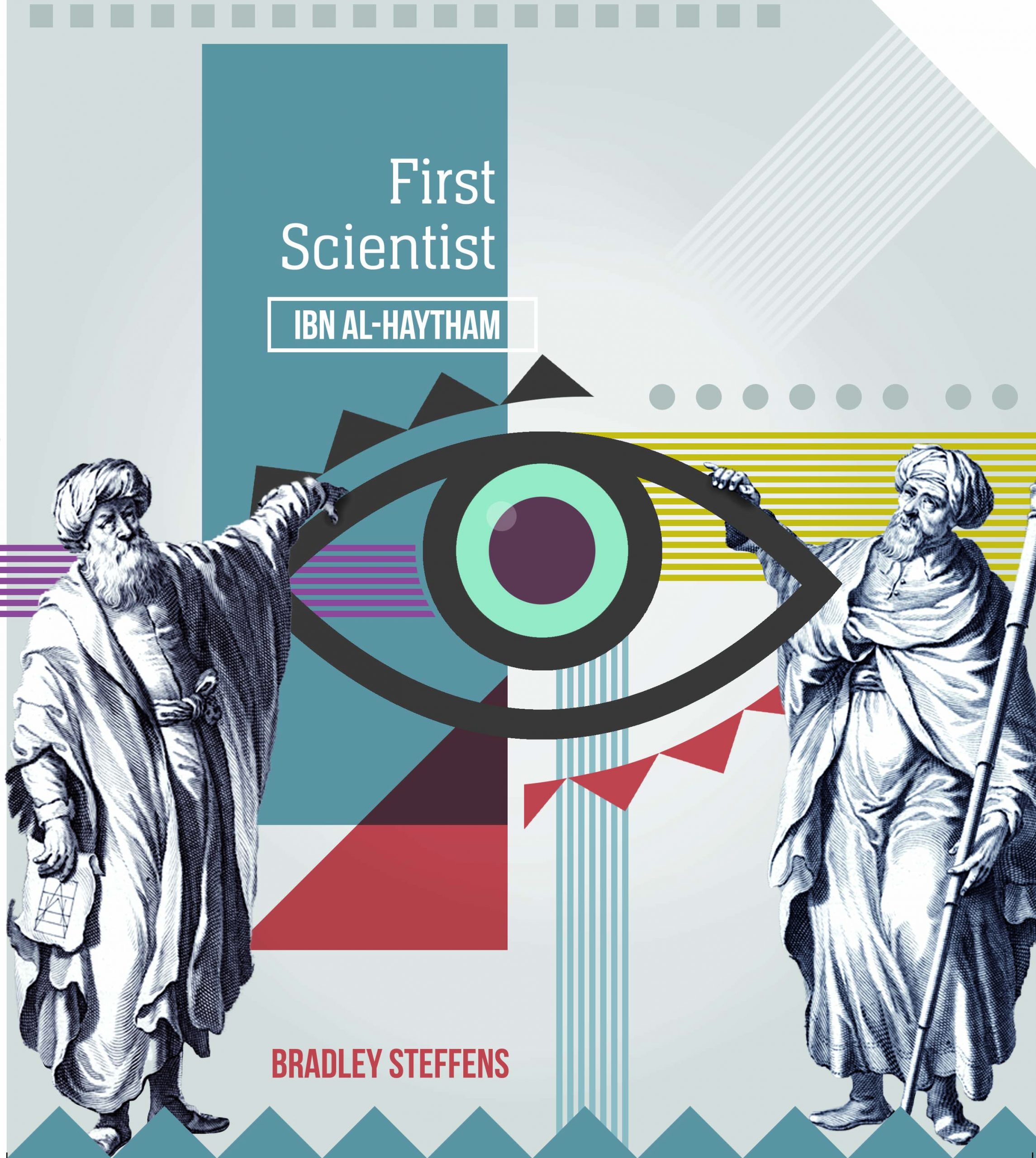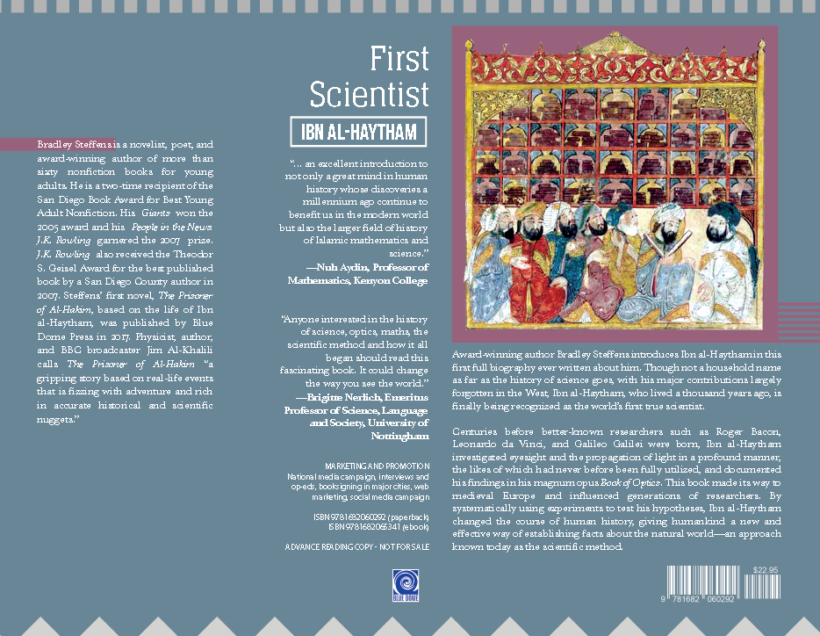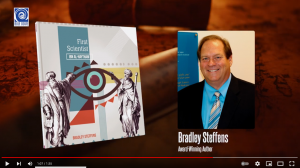Description
Award-winning author Bradley Steffens introduces Ibn al-Haytham in this first full biography ever written about him. Though not a household name as far as the history of science goes, with his major contributions going largely unnoticed and uncredited, Ibn al-Haytham, who lived a thousand years ago, is finally being recognized as the world’s first true scientist.
Centuries before better-known researchers such as Roger Bacon, Leonardo da Vinci, and Galileo Galilei were born, Ibn al-Haytham investigated eyesight and the propagation of light in a profound manner, the likes of which had never before been fully utilized, and documented his findings in his magnum opus Book of Optics. By systematically using experiments to test his hypotheses, Ibn al-Haytham changed the course of human history, giving humankind a new and effective way of establishing facts about the natural world—an approach known today as the scientific method.
Trailer: https://youtu.be/MUj-gMjpY_U
















Blue Dome –
FIRST SCIENTIST: IBN AL HAYTHAM,
In the age of islamophobia in which Islam and Muslims are perceived as a
potential threat to the so-called civilized world, a discourse on the Muslim
contribution to knowledge and scientific thinking brings in some fresh air in
an otherwise intellectually polluted environment. Bradley Stiffen’s absorbing
and remarkable contribution to the history and philosophy of science is not
a mere biography of Ibn al-Haytham, it provides an authentic information
resource on the golden age in which Muslim scientists made revolutionary
contributions as leaders in the applied sciences.
Ibn al-Haytham, with his encyclopaedic knowledge, was the first person
to accurately describe the physics behind the projection of images through
apertures, which led to the development of film camera and even the digital
camera. As the first modern scientist, he pioneered experimental science
around six hundred years before Galileo Galilei and four hundred years before
Leonardo da Vinci (p. 7).
Ibn al-Haytham was fully aware of the limitations of human sensory
perception, observation, and investigation. Premises are gleamed from the
senses, and the latter which are our tools are not immune from error (p. 9). But
this did not cause Ibn al-Haytham to adopt the way of thinking of the skeptics
or agnostics. Rather, it led him to adopt an exploratory approach for new
ways to establish the validity of observation and rational and logical thinking.
His Kitab al-Manazir became the basis of scientific development in Europe
through its Latin translation. Ibn al-Haytham mastered mathematics and
studied Euclid’s most famous book Elements on geometry. He summarized
and analysed Euclid’s writings, recognizing him as his guide.
As a keen learner, he studied the works of Archimedes and wrote a commentary
criticizing the logic he used to reach his conclusions. He also studied Claudius
Ptolemy’s work, particularly the Almagest, which he summarized, but he was
critical of his views and planned to write a commentary based on his criticism.
His books covered a wider range of topics as their titles indicate: Business
Arithmetic, Determination of the Altitude of Mountains, Determination of the Heights
of Pole with the Greatest Precision; On the Altitudes of the Triangles; On the Principles
of Measurement. He even contributed a scholarly work, On the Construction of the
Water Clock. He also claimed that he could build a system of dams, levees and
canals that would prevent the Nile from overflowing in the fall and, in this
way water, may be saved for irrigation in summer.
The problem-solving approach of Ibn al-Haytham make him a leader in
the use of technology for sustainable development. This volume by Bradley
Steven deserves appreciation for highlighting the greatness of the revolutionary
contribution made by Ibn al-Haytham and also adds to the evidence of
Muslim contributions in the world of knowledge. It also dispels the myth
that scientific thought originated in the West just as it proves that there is no
conflict between faith and science. The book is essential for all those interested
in Islamic science and its history.
Anis Ahmad
Riphah International University, Pakistan
The Muslim World Book Review, 42:3, 2022